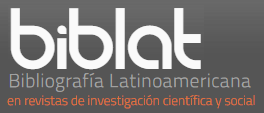Living Conditions in the State of Paraná: Ecological Analysis Based on Variables of the 2000 Demographic Census
DOI:
https://doi.org/10.5433/1679-0367.2004v25n1p73Keywords:
Living conditions, Social inequality, Community development.Abstract
Living conditions and social inequalities exert a strong influence on the health status of populations. As part of a research that analyzes the relationship between living conditions and mortality rate, this study puts forward a proposal to classify municipalities in the State of Paraná, according to their living conditionns. The classification was based on ten (10) variables of the 2000 Demographic Census, and on the analysis of the discriminatory power of the clusters developed by this study according to the municipality human development index (M-HDI). After having evaluated the municipalities main components and carried out a cluster analysis by the K-means method, five municipal clusters were developed, according to their living conditions. The comparative study of the clusters using the analysis of variance (ANOVA) and the post hoc Tukey test showed inequalities towards these municipalities urban infrastructure (water supply and garbage collection), and the social insertion of their population. Clusters followed a similar pattern when compared to the M-HDI. Those with increasing M-HDI were classified as having better living conditions, and with statistically significant differences, except for the "longevity" component. Results indicate that the clusters developed on the basis of the variables analyzed have a discriminatory power on their living conditions.
Downloads
Downloads
Published
How to Cite
Issue
Section
License
Copyright (c) 2009 Semina: Ciências Biológicas e da Saúde

This work is licensed under a Creative Commons Attribution-NonCommercial 4.0 International License.
adopts the CC-BY-NC license for its publications, the copyright being held by the author, in cases of republication we recommend that authors indicate first publication in this journal.
This license allows you to copy and redistribute the material in any medium or format, remix, transform and develop the material, as long as it is not for commercial purposes. And due credit must be given to the creator.
The opinions expressed by the authors of the articles are their sole responsibility.
The magazine reserves the right to make normative, orthographic and grammatical changes to the originals in order to maintain the cultured standard of the language and the credibility of the vehicle. However, it will respect the writing style of the authors. Changes, corrections or suggestions of a conceptual nature will be sent to the authors when necessary.
This Journal is licensed with a license Creative Commons Assignment-NonCommercial 4.0 International.

















